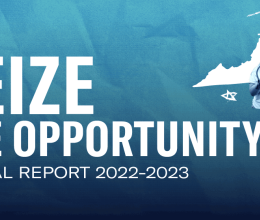
Proposed bills in Virginia House and Senate would reject Real ID
Richmond, VA – A systematic analysis of the Department of Homeland Security’s (DHS) final regulations for the Real ID Act reveals that the regulations still address only about ten percent of the problems with the act that have been identified, the American Civil Liberties Union said today.
“The regulations appear to simply dump many of the hard problems of the much maligned statute on future administrations,” said ACLU of Virginia Executive Director Kent Willis. “ Since legitimate complaints were ignored willfully by DHS, it is now clear that Congress needs to step in and fix what DHS will not.”
The ACLU’s analysis of the regulations is based on a list of 56 problems that have been commonly identified with the Real ID law by a variety of parties, including privacy activists, domestic violence victims, anti-government conservatives, religious leaders and DMV administrators. Of the 56 problems, the regulations successfully addressed or “passed” 6 (11 percent), scored an incomplete on 12 (21 percent), and failed 38 (68 percent).
The scorecard was a response to Homeland Security’s long-awaited release of final regulations on Friday implementing the 2005 Real ID Act, which would federalize state driver’s licenses and create the nation’s first-ever de facto national identity card system. The IDs will be required for air travel and to access many federal facilities.
DHS has been promising regulations for several years to make it clear to states how the broad mandates of the law are to be implemented. Extensive delays in issuing these regulations have exacerbated state complaints, 17 of which have rebelled by passing anti-Real ID legislation.
In Virginia, Senator Emmett Hanger has introduced SB 492, which rejects Real ID as an unfunded federal mandate. In addition, Delegate Christopher K. Peace has introduced HJ 42, which asks Congress to repeal Real ID or to delay it until funds are available from the federal government to cover the costs of implementation and the statute is amended to make certain that the privacy rights of all citizens are protected.
Under Governor Mark Warner, Virginia became the first state to study the impact of the Real ID Act. Warner’s Real ID Task Force issued a report in December 2005 questioning the cost, practicality, and effectiveness of the law, and expressing concerns about the loss of privacy rights and increased opportunities for identity theft.
“What is most important now is for the states to make it clear that Real ID must be repealed,” said Willis. “Virginia’s lawmakers need to speak up now by passing SB 492 and HJ 42.”
Contact: Kent Willis, Executive Director, 804/644-8022



